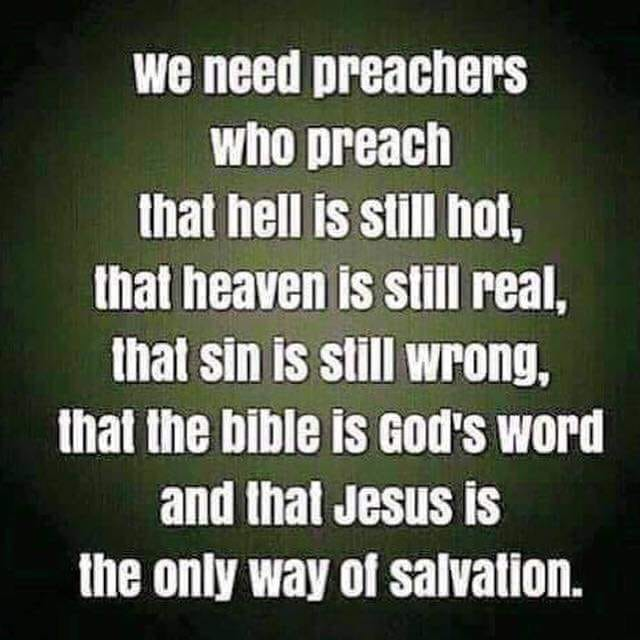I may well speak fluently of Calvinism, Reformed, Wesleyan and even Seven Day Adventist within an assemblage of brethren. I can even lead them to a point of excitement and feelings of being accepted as one great body of believers. Never-the-less, when I walk away, and I see them only as theological misfits, I am nothing more than sound and fury signifying nothing.
I even can preach and teach the great mysteries of theology and apologetics. I can make thoughtful and logical expositional and theological stands. I can and have used illustrations of media and popular culture in making my three points of homiletics clear. I have presented the Words of God to such a way that people broke out in song or raised hands in expressions of joy. If I have opened Gods truth that some were moved to simply sit in awe. Never-the-less, if I do not care enough to know God myself and those who are loved by that same God, I am nothing but a white noise.
If I create a new vision for the church for new things and buildings are built as one more big edifice to Christianity, but I lose sight of the God I serve and the people that God loves, I am nothing.
If I am well known in the congregation as being one the biggest givers, and I am always there to sponsor the next big thing at the church and always willing to go the conference or barbeque, and I do not show love for those sitting in the corner wanting the most just to be included, they don’t mean a thing.
You see, no matter what I say, or believe or even what I do, if I leave out love, I am a man without hope or worth.
Love is the thing. Love is never exhausted, it never gets too old, it never runs out of energy. Love and compassion are more concerned with the other guy than my own selfish desires. Love is giving a couple of dollars to the man standing at a street corner; the very dollars you were going to spend for coffee on the way to church.
Love isn’t about the next big thing that everyone else has. It is acknowledging all that I have are gifts from Him.
The opposite of love is walking around with the nicest clothes, with head held high, with the expectation that all around you will notice and give you preferential treatment. It is giving everyone a voice.
It is the realization that you are not that important. It is the acceptance of equality of idea, belief, stature, hope, dreams, and life.
Love is about sitting in the back at church not wanting to be seen or giving the best piece of pie at the potluck to the person who really needs it. It is giving up your place in line when it is inconvenient. In traffic, it is giving the other guy a way to get in even though he has just cut off three other cars. And when someone does not let you in, you say to yourself, “we all have places to go.”
Love is not caring about a heavenly scorecard keeping the size and quantity of sins for everyone else but me.
Love does not reveal the secrets of other travelers going the same way, instead, love takes delight and joy in new understandings and knowledge.
Love puts up with more than anyone would expect. When things get you down, love is there to bring you back up because God is trust. Love in you will always be looking for the best in people, best in events, best in circumstances and best in the worst.
For Love, the past is the past and we need not look back with feelings of regret and longing; Love simply keeps going to the ultimate rewards of God.
You see my friends, Love just keeps on going, it never stops, it does not grow weary, it does not slow down because of resistance or age.
All that I have written will be nothing someday. All the lessons I have diligently prepared and presented in God’s name will be gone and forgotten.
Even the essence of my intellect and understanding will reach a limit.
I can not know it all; I try with all my strength to push one more idea or catchphrase into my limited mind. But I still know just a little piece of the truth. Everything I have ever learned, explored, understood, known, taught, preached, prayed is and will always be incomplete. The good news is that when the total, the complete, the absolute, the perfect arrives, my incompleteness will all be eliminated.
When I was a kid, running wild in the streets and hills, I had few responsibilities or wonder. I spoke of little things and fretted about even smaller things. But I have grown up and have eliminated all the little things only to be confronted by the things I cannot know.
Today we can’t see the things that are right before our eyes. There seems to be a wispy cloud between God and me. I want to see better, I want to find some tool to dispel the mist, but there is none to be found.
Someday the mist will part. Someday the fog will burn through by a great light. I won’t be long before the crystal-clear day dawns and the sun will cast its warmth upon my face and I will be warmed by it. We’ll see it all then. We will see as clearly and keenly as God sees. Someday the view will be so clear so perfect that we all will see as clearly as God sees us, knowing him directly just as he knows us!
Until that perfect completeness comes and reveals itself through the new day, we must keep on loving. Faith in the love of God has for us, hope in the inescapable and unchanging Love of God and to simply Love without extravagant limits. But the best of these is simple and uncomplicated; LOVE!



